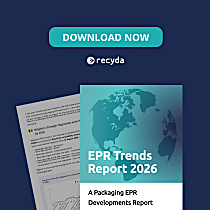US government makes multi-million pledge to cut plastic pollution in Africa and Latin America

The US government is doubling its funding for the End Plastic Pollution Innovation Collaborative (EPPIC) — a public-private partnership aimed at strengthening international efforts to combat plastic pollution. The total investment in the project is now US$24 million.
EPPIC supports projects around the world to improve the lifecycle of plastics, centrally through improved product design. The partnership is hosted and implemented by the International Union for Conservation of Nature (IUCN), the Aspen Institute, The Ocean Foundation and Searious Business.
It has gained attention for its commitment to enhance cooperation among diverse stakeholders, uniting governments, businesses, civil society and philanthropies to tackle the global plastics crisis.
The announcement was made during the third edition of the IUCN’s Leaders Forum in Switzerland, Geneva, yesterday.

John Thompson, the US Deputy Assistant Secretary of State for Environment in the Department of State’s Bureau of Oceans and International Environmental and Scientific Affairs, made the announcement, saying the additional support demonstrates the US’ continuous commitment to enhancing robust multi-stakeholder cooperation and is a vital step toward scaling EPPIC’s collective efforts.
“This significant contribution underscores the USs’ commitment to supporting sustainable solutions and addressing the global challenge of plastic pollution. It reinforces our dedication to tackling plastic pollution and strengthens our collaboration with our hosts, IUCN, The Ocean Foundation, the Aspen Institute and Searious Business,” he says.
Latin American and African expansion
 Dr. Aguilar and Dr. Thompson shake hands as the increased EPICC funding is announced.EPPIC is currently preparing to scale its operations to raise public awareness and support policy development. The project also aims to drive business development for micro, small and medium-sized enterprises in the upstream and midstream stages of the plastic life cycle.
Dr. Aguilar and Dr. Thompson shake hands as the increased EPICC funding is announced.EPPIC is currently preparing to scale its operations to raise public awareness and support policy development. The project also aims to drive business development for micro, small and medium-sized enterprises in the upstream and midstream stages of the plastic life cycle.
EPPIC is currently expanding its reach in Latin America and Sub-Saharan Africa, by collaborating with similar initiatives.
So far, the initiative has launched in Costa Rica, Guatemala and Senegal, with upcoming initiatives planned in Ghana, Kenya, South Africa and several Small Island Developing States across Africa.
EPPIC is accepting applications in Africa for its Grant Program, which will fund in-country projects that address upstream and midstream plastic pollution interventions. Additionally, the soon-to-be-launched EPPIC Innovation Prize will incentivize cutting-edge approaches to address key challenges and promote plastic circularity.
By fostering innovation, the prize will seek to identify and support scalable projects capable of making a significant impact in the global effort to build a circular economy for plastics.
US investment in UN Global Plastic Treaty
This increased investment comes ahead of the upcoming Intergovernmental Negotiating Committee on Plastic Pollution meeting (INC-5) in Busan, South Korea, in November.
The US administration recently announced a U-turn on its position toward the treaty stipulations, opting to ally with the High Ambition Coalition goals of mandatory global caps on plastics production, in opposition to key petrochemical states like Saudi Arabia.
EPPIC says it will serve as an important complement to the negotiations by engaging partners outside national-level governments.
“Plastic pollution is a global crisis that transcends boundaries and affects us all. Governments, the private sector, civil society, academia, and communities must work together if we are to protect nature, biodiversity and human health. We must support new approaches to reduce, reuse and recycle plastics,” IUCN director general, Grethel Aguilar.
“This funding and continuing commitment from the US State Department announced here at the IUCN Leaders Forum, will ensure the continuing, successful implementation of the EPICC partnership as it seeks to expand its reach.”











